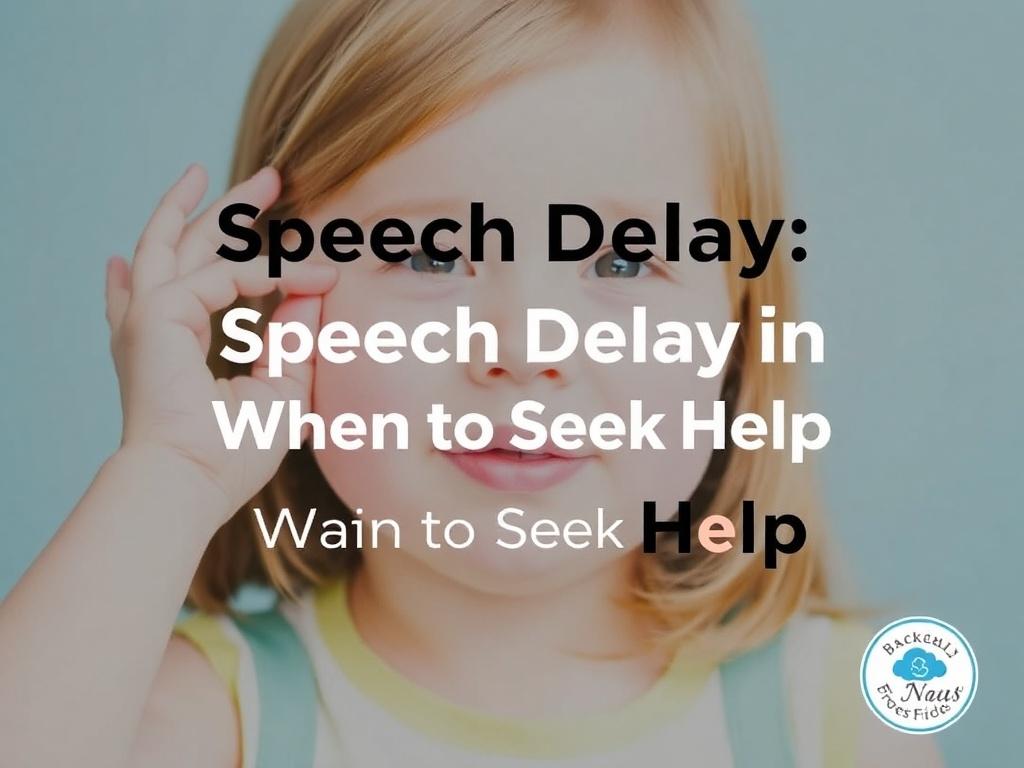SQLITE NOT INSTALLED
Toddlers are naturally curious little explorers who soak up the world around them like tiny sponges. One of the most exciting milestones for parents is hearing their child’s first words and watching their vocabulary blossom as they grow. But what if your toddler isn’t talking as much as their peers? Speech delays can be incredibly worrying, and it’s hard not to wonder, “Is this normal or should I be concerned?”
In this comprehensive guide, we’ll dive deep into everything you need to know about speech delay in toddlers. From understanding what typical speech milestones look like, to identifying signs of speech delay, to knowing when and where to seek professional help, we aim to give you clear, practical information. Whether you’re a first-time parent or someone who wants to better support young children, this article covers all the essentials with warmth and clarity.
What Is Speech Delay in Toddlers?
Speech delay in toddlers refers to a condition where a child’s speech development lags behind the typical age range. All children develop at their own pace, but speech delay usually means your toddler isn’t using words and sentences as expected for their age. This can range from saying very few words at 2 years old to struggling to combine words into simple phrases.
Parents often worry about whether their child’s speech delay indicates something more serious, like a developmental disorder or hearing issue. The good news is, many toddlers with speech delays simply need extra time or some targeted support to catch up.
Understanding what counts as “normal” speech development helps to separate typical variation from more concerning delays. For instance:
- At 12 months, most toddlers say their first word.
- By 18 months, toddlers typically have a vocabulary of around 20 words.
- At 24 months, many toddlers start combining two words together.
- By 3 years, toddlers usually communicate in simple sentences and are understood by familiar adults.
If your toddler is falling significantly behind these stages, it might be time to consider consulting a professional.
Common Causes of Speech Delay

Many factors can contribute to speech delay in toddlers, so it’s important to look at the big picture. Sometimes, speech delays are just a matter of individual differences and stop being an issue as the child grows. Other times, underlying causes require intervention.
Hearing Problems
Speech development is closely linked to hearing. Children learn to speak by listening to the world around them. A toddler with a hearing impairment might not be picking up the sounds they need to mimic and learn. Common causes include ear infections that temporarily affect hearing or congenital hearing loss.
Speech or Language Disorders
There are specific disorders that impact speech and language abilities:
- Speech Sound Disorders: difficulties pronouncing sounds correctly.
- Expressive Language Disorder: problems expressing thoughts and ideas through speech.
- Receptive Language Disorder: trouble understanding spoken language.
These disorders require assessment by a speech-language pathologist for proper diagnosis and treatment.
Developmental Delays and Conditions
Sometimes, speech delay is part of broader developmental challenges such as autism spectrum disorder (ASD), intellectual disabilities, or neurological conditions. In these cases, speech delay might be accompanied by other signs such as difficulty with social interaction, repetitive behaviors, or difficulties with motor skills.
Environmental Factors
Environment plays a big role in speech development. Children growing up in a language-rich environment with lots of interaction typically develop speech skills faster. Factors like limited social interaction, excessive screen time, or lack of engagement with caregivers can contribute to delays.
Signs and Symptoms of Speech Delay You Should Watch For

As a parent or caregiver, you are often the first to notice that something might be amiss. Here are some clear signs of speech delay in toddlers that warrant attention:
| Age | Typical Speech Milestones | Signs of Possible Speech Delay |
|---|---|---|
| 12 months | Says a few meaningful words like “mama” or “dada” | No recognizable words or consistent sounds |
| 18 months | 50+ words and beginning to point to objects | Less than 20 words, no attempts to communicate |
| 24 months | Combines two words, follows simple instructions | Not combining words, not understanding simple commands |
| 36 months | Uses simple sentences, understandable to family | Speech difficult to understand, limited vocabulary, frustration when trying to communicate |
Additional signs to watch for include:
- Failure to respond to sounds or name by 12 months.
- Frequent crying or frustration when trying to communicate.
- Rarely uses gestures like pointing or waving.
- Difficulty imitating sounds or words.
- Noticeable speech that is hard for even close family members to understand.
How Parents Can Support Speech Development at Home
While some speech delays need professional help, parents can play an important role in nurturing language skills from the comfort of home. Here are practical, actionable tips:
Engage in Frequent Conversations
Talk to your toddler throughout the day. Narrate your actions, describe objects, and ask questions. Simple exchanges help build vocabulary and encourage your child to respond.
Read Books Together
Reading is a powerful tool for language development. Choose age-appropriate books with bright pictures. Point to images and name them, and encourage your toddler to repeat words.
Play Interactive Games
Games like “peek-a-boo” or “Simon says” help children learn new words and practice listening skills. Use songs and rhymes as well to engage your toddler’s auditory senses.
Limit Screen Time
While some educational content can be helpful, passive screen time should be kept minimal. Children learn best from human interaction, not from screens.
Use Simple, Clear Language
Communicate with your toddler using simple sentences and clear pronunciation. Repeat important words often to reinforce understanding.
When to Seek Professional Help for Speech Delay

One of the most important questions parents ask is: when do you seek help for speech delay? Early intervention leads to better outcomes, so it’s wise not to delay if you notice signs of speech difficulty.
Experts recommend seeking an evaluation if your toddler:
- Does not say any words by 18 months.
- Has fewer than 50 words and doesn’t combine two words by 24 months.
- Has trouble understanding simple instructions by 24 months.
- Has unclear speech or difficulty being understood by familiar adults by age 3.
- Shows other developmental concerns, such as difficulty socializing.
Early evaluation by a pediatrician or a speech-language pathologist will help identify the cause and create a tailored plan. These specialists assess hearing, language skills, and overall development in detail.
Types of Professionals Who Can Help
Once you decide to seek support, you will likely encounter several types of professionals. Here is a breakdown:
| Professional | Role | When to Consult |
|---|---|---|
| Pediatrician | Initial evaluation, ruling out medical causes, referring specialists | First step if you notice speech delay signs |
| Speech-Language Pathologist (SLP) | Assessment and therapy for speech and language difficulties | If delay confirmed, for ongoing therapy and progress tracking |
| Audiologist | Hearing tests and management of hearing disorders | If hearing loss suspected |
| Developmental Pediatrician or Neurologist | Assessment of broader developmental or neurological issues | If delays are part of wider developmental concerns |
Speech Therapy: What to Expect
If your toddler is referred to speech therapy, you’re probably wondering what will happen. Speech therapy is a collaborative and fun process focused on helping your child improve communication skills. It’s tailored to the child’s specific needs and age.
Typical components of speech therapy include:
- Play-based activities to promote speech and language skills.
- Exercises to improve articulation and pronunciation.
- Guidance for parents on how to support communication at home.
- Regular progress reviews and adjustment of therapy goals.
Therapists often use visual aids, toys, and interactive games to keep toddlers engaged. Most sessions are short but frequent to build skills steadily.
Helping Your Toddler Thrive Beyond Speech
While focusing on speech delay, it’s important to remember that toddlers develop holistically. Supporting physical, emotional, and social development plays a crucial part in fostering communication abilities. Here are some additional ways to nurture your child:
Encourage Social Interaction
Playdates, family gatherings, and group activities help toddlers practice communication and make social connections. Social experiences provide natural motivation for speech.
Provide a Safe and Supportive Environment
Patience and positive reinforcement go a long way. Celebrate all attempts your toddler makes to communicate, whether through words, gestures, or expressions. Avoid harsh corrections or comparisons to other children.
Focus on Nonverbal Communication
Body language, eye contact, and facial expressions are foundational communication tools. Encourage your toddler to use gestures to express themselves while they develop speech.
Myths About Speech Delay Debunked
When dealing with speech delay, it’s easy to fall prey to myths and misinformation. Let’s clear up some common misconceptions:
- Myth: Boys always talk later than girls.
- Fact: While boys might develop speech slightly later on average, large delays are not just about gender differences.
- Myth: Your child will “grow out of” speech delay without intervention.
- Fact: Some children may catch up naturally, but others need help, especially if a delay is significant.
- Myth: Watching educational TV programs improves speech quickly.
- Fact: Passive screen time doesn’t replace real-life interaction, which is crucial for developing speech.
- Myth: Speech delay means your child isn’t smart.
- Fact: Speech delay is not an indicator of intelligence — many children with delays go on to do perfectly well academically and socially.
Conclusion: Taking the Next Steps with Confidence
Speech delay in toddlers can understandably feel overwhelming, but remember — you are not alone, and there is plenty you can do to support your little one. Early recognition and intervention are keys to helping your child develop strong communication skills. Be observant of milestones, engage actively with your toddler at home, and don’t hesitate to seek professional advice when needed.
Your toddler’s unique voice is just waiting to be discovered and nurtured. With patience, love, and the right support, they will find their words and stories to share with the world.
Thank you for reading this detailed guide on speech delay in toddlers. If you have any concerns, reach out to your pediatrician or a speech-language pathologist for a personalized evaluation and assistance. Every child deserves the joy of being heard and understood — and with the right help, your toddler will get there!
